

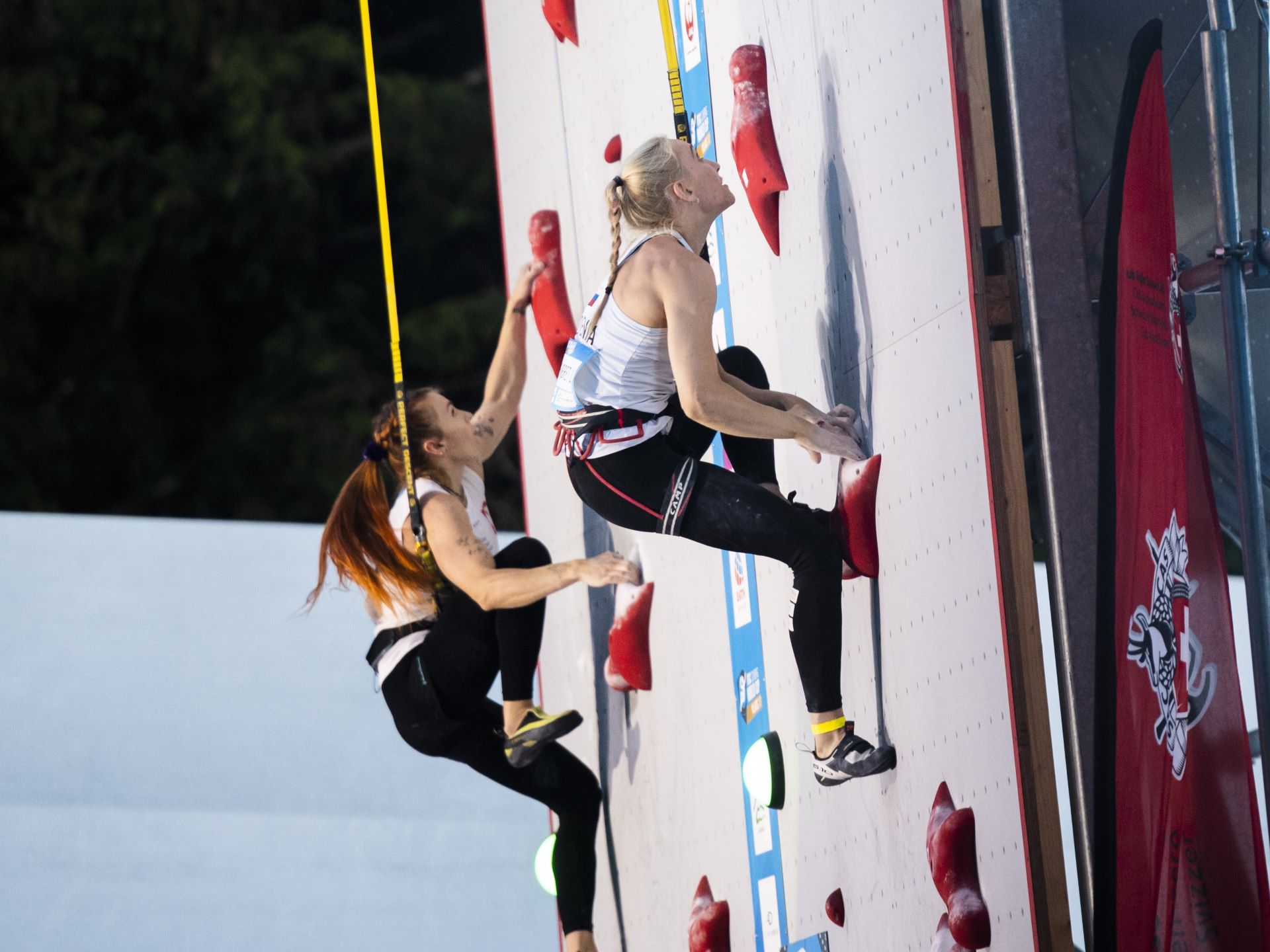
Speed climbing entails climbing a globally standardised route secured from above as quickly as possible. Qualification comprises two rounds for each athlete. The aim is to achieve the fastest possible time. The fastest 16 climbers from the qualifying rounds will advance to the final rounds. From the round of sixteen onwards, athletes compete against each other in a knockout system.
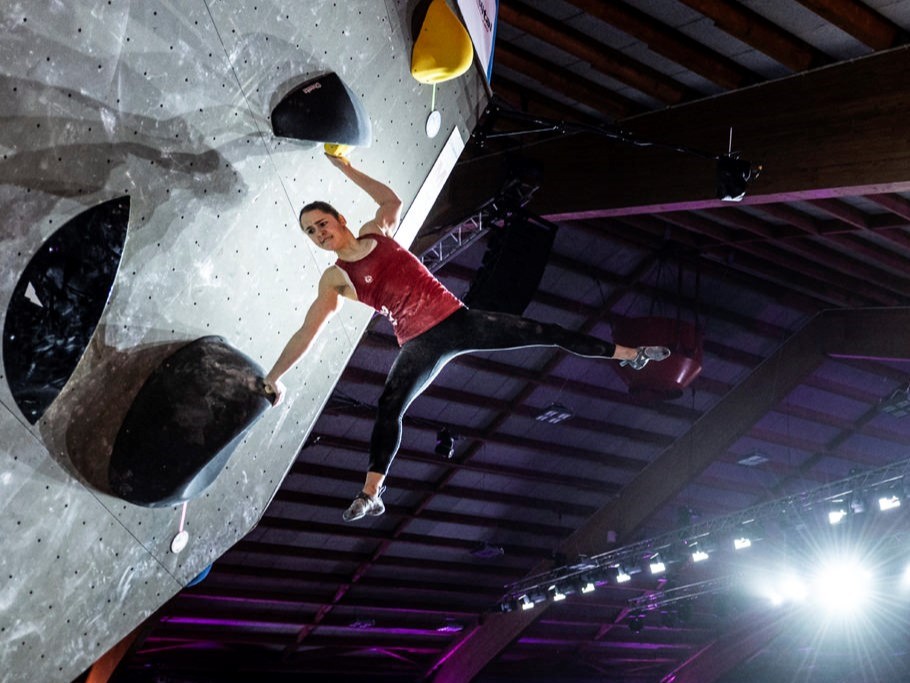
Bouldering involves climbing without a rope up to a height of 4.5 metres. Four to five “bouldering problems” with complex individual moves and difficult movement sequences must be mastered in a given time. The aim is to hold the top hold, i.e. the uppermost hold, with both hands.
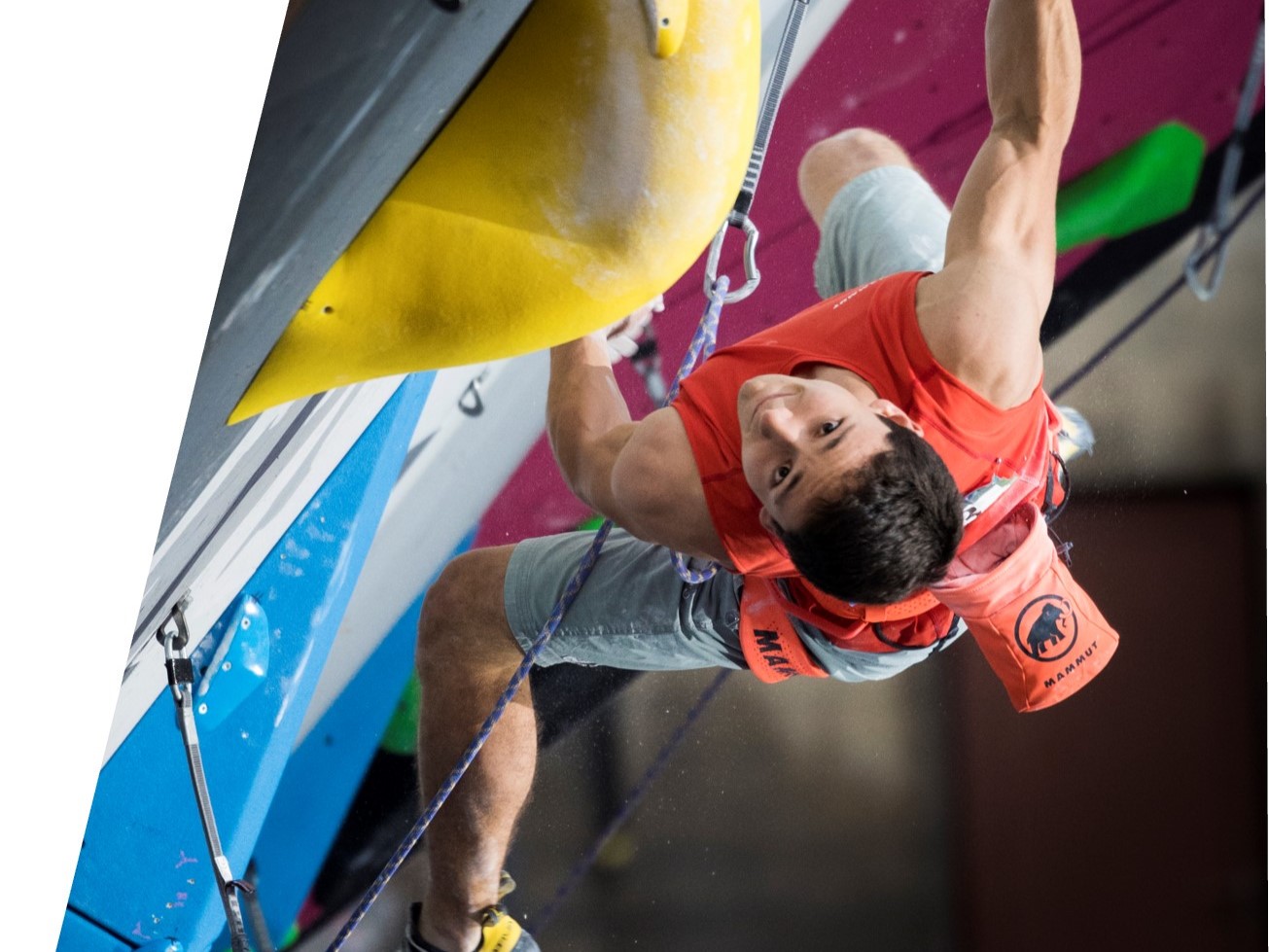
Athletes climb in lead along a previously unfamiliar route. The aim is to get as far as possible – ideally to the top hold. Competitors have 6 minutes to complete their attempt. The route has a minimum length of 15 metres.
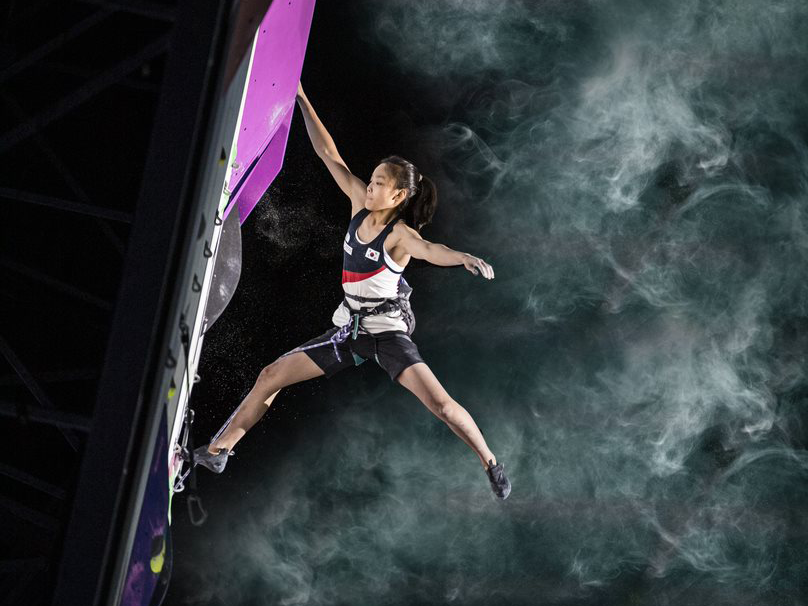
Ahead of the 2024 Summer Olympics in Paris, a new event will be introduced with combined scoring from the Boulder and Lead disciplines. There is a fixed order of events: the competition starts with Boulder, followed by Lead.
The most successful paraclimbers compete in the discipline Lead. Athletes are placed in different categories depending on the type and degree of their disability in order the guarantee the fairest possible competition. Despite their impairment, some athletes climb very challenging routes up to grade 8 on the French scale.
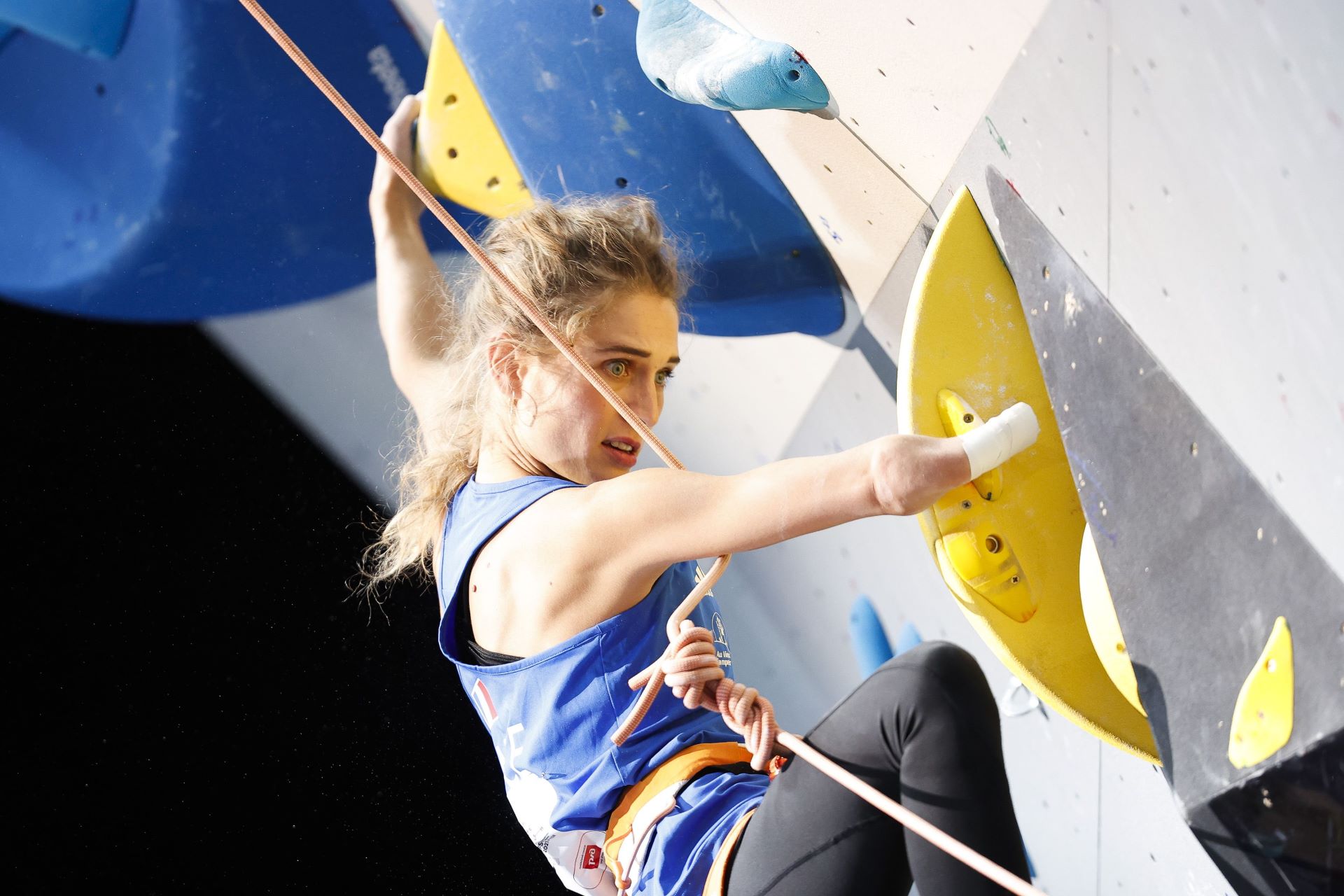
Limb deficiency
Reduced muscle tone
Impaired movement coordination (ataxia)
Involuntary movement (athetosis)
Impaired vision
Reduced muscle strength, e.g. due to a spinal cord injury
Impaired range of joint movement
Leg length difference (at least 20%)
Short stature (<140 cm)
Paraclimbers have at least one of the following disabilities, which also meet the so-called “minimum criteria”.
More information: Paraclimbing IFSC.